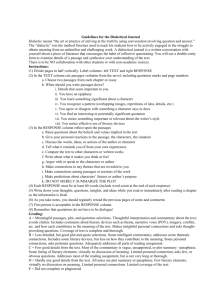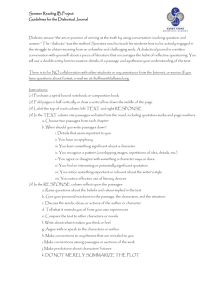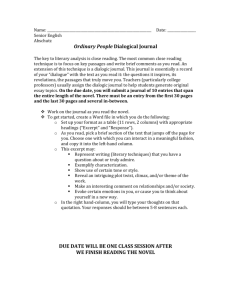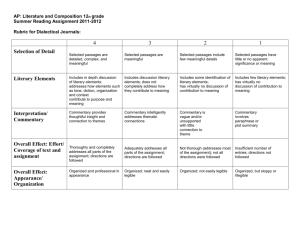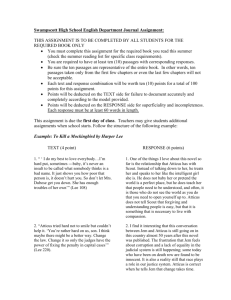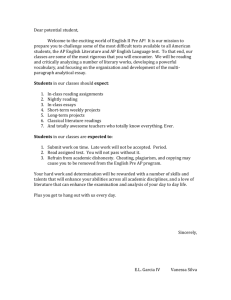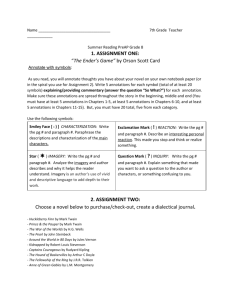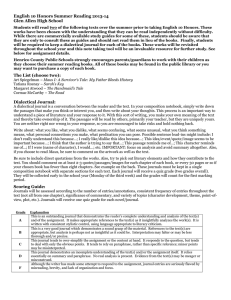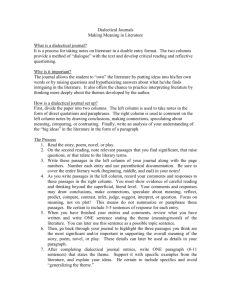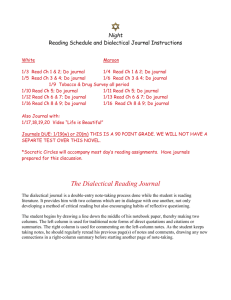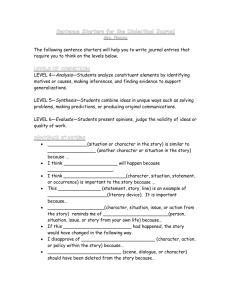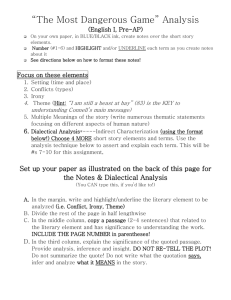Guidelines for the Dialectical Journal
advertisement
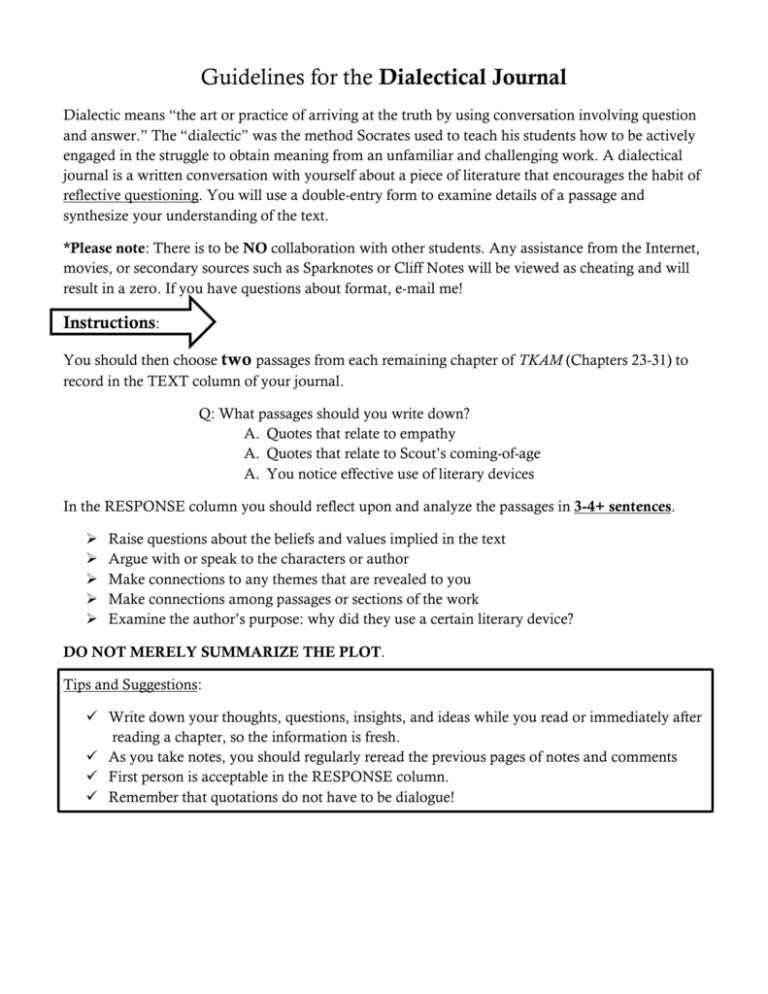
Guidelines for the Dialectical Journal Dialectic means “the art or practice of arriving at the truth by using conversation involving question and answer.” The “dialectic” was the method Socrates used to teach his students how to be actively engaged in the struggle to obtain meaning from an unfamiliar and challenging work. A dialectical journal is a written conversation with yourself about a piece of literature that encourages the habit of reflective questioning. You will use a double-entry form to examine details of a passage and synthesize your understanding of the text. *Please note: There is to be NO collaboration with other students. Any assistance from the Internet, movies, or secondary sources such as Sparknotes or Cliff Notes will be viewed as cheating and will result in a zero. If you have questions about format, e-mail me! Instructions: You should then choose two passages from each remaining chapter of TKAM (Chapters 23-31) to record in the TEXT column of your journal. Q: What passages should you write down? A. Quotes that relate to empathy A. Quotes that relate to Scout’s coming-of-age A. You notice effective use of literary devices In the RESPONSE column you should reflect upon and analyze the passages in 3-4+ sentences. Raise questions about the beliefs and values implied in the text Argue with or speak to the characters or author Make connections to any themes that are revealed to you Make connections among passages or sections of the work Examine the author’s purpose: why did they use a certain literary device? DO NOT MERELY SUMMARIZE THE PLOT. Tips and Suggestions: Write down your thoughts, questions, insights, and ideas while you read or immediately after reading a chapter, so the information is fresh. As you take notes, you should regularly reread the previous pages of notes and comments First person is acceptable in the RESPONSE column. Remember that quotations do not have to be dialogue! Sample Journal: The Things They Carried: Dialectical Journal Grading: This journal will count as a major writing assignment. A (100) = Meaningful passages, plot, and quotation selections. Thoughtful interpretation and commentary about the text; avoids clichés. Includes comments about literary devices such as theme, narrative voice (POV), imagery, conflict, etc. and how each contributes to the meaning of the text. Makes insightful personal connections and asks thoughtprovoking questions. Coverage of text is complete and thorough. Journal is neat, organized and professional-looking; student has followed directions in creation of journal. B (85) = Less detailed, but good plot and quote selections. Some intelligent commentary; addresses some thematic connections. Includes some literary devices, but less on how they contribute to the meaning. Some personal connections; asks pertinent questions. Adequately addresses all parts of reading assignment. Journal is neat and readable; student has followed directions in the organization of journal. C (75) = Few good details from the text. Most of the commentary is vague, unsupported, or plot summary / paraphrase. Some listing of literary elements; virtually no discussion of meaning. Limited personal connection; asks few, or obvious questions. Addresses most of the reading assignment, but is not very long or thorough. Journal is relatively neat, but may be difficult to read. Student has not followed all directions for organization; loose-leaf; no columns; no pages numbers; etc. F (65) = Hardly any quality details from the text. All notes are plot summary or paraphrase. Few literary elements, virtually no discussion on meaning. Limited personal connections, no good questions. Limited coverage of the text; way too short. Did not follow directions in organizing journal; difficult to follow or read. No pages numbers. F (0) = Did not complete or plagiarized.
